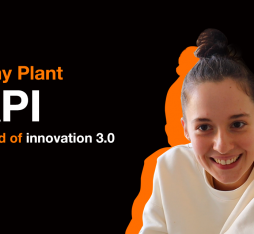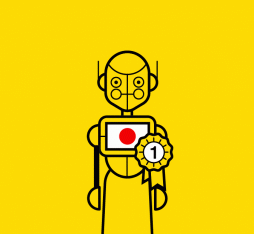The value of digital in societal terms in every domain, from education to healthcare, is by now self-evident. Should you need any convincing, just peruse the articles on this blog. But the ubiquity of digital can sometimes raise concerns: the technology has taken over our everyday environment to such an extent that we don’t even notice it any more. And yet…
Digital stuff, everywhere, always
Largely virtual and “embodied” in software apps and algorithms, digital technology has even gone so far as to integrate into physical objects: think of those 100,000 trees in Paris that are now equipped with their own RFID chips!
Digital power is equally exponential. As Nicolas Demassieux, Director of Research at Orange explains, “Digital captures value in the economic meaning of the word, but it also captures knowledge. Digital allows us to accumulate a huge capital of knowledge about the world around us. A company like Google has developed a store of erudition that makes it a sort of “Pico della Mirandola 2.0” (referring to the 15th-century Italian humanist whose erudition and memory were legendary). Effectively, the Mountain View giant is investing in multiple fields of endeavour. In healthcare, for example, it hopes to prevent, and ultimately eradicate, all sorts of pathologies though its Project Baseline. The idea behind Baseline is to map out good human health by collecting a vast range of data from some 10,000 volunteers over a 4-year period. The data will include clinical information, medical imagery, behaviour patterns, environment, etc. More recently, Google announced that it intended to supplement its indexing of the Web with an index of the real world by combining data from its Streetview cameras with AI algorithms able to detect and recognize all the objects populating our cities, from traffic signs to bus shelters, and from store signs to parking spaces, and upload the data to a gigantic database!
On free will in the world of 2.0
When Lawrence Lessig, a law professor and defender of internet freedom, wrote his text Code is Law on the eve of the second millennium, he raised a fundamental question – that of freedom in cyberspace and the “regulability” of the internet – a question that embraces all of digital.
The issues raised are considerable. Technology is increasingly claiming decision-making power over our lives via artificial intelligence. And more often than not, we allow it to exercise this power and freely delegate it. This began with ABS systems, where sensors on car wheels, a computer and a hydraulic braking system help drivers to retain control over their vehicles in an emergency braking situation.
Errare robotum est?
But what happens when the system is defective? Because total infallibility does not exist, and news stories regularly remind us of this fact. “Like the robot security guard that ran over a toddler in a California mall in 2016, or, more recently the other robot that fell into a fountain in Washington DC.”
Even so, we must not forget the enormous potential of digital and new technologies. AI has made, is making and will make mistakes, but we must see these subjects from a systemic angle, see the whole picture, according to Nicolas Demassieux.
Stop the hysteria!
“Take the example of self-driving cars: overall, their driving will be better because they do not drink, or talk on their mobile phones while driving. We are seeing a growing amount of hysteria creeping into the debate, whence a degree of excessive caution, especially around AI. We need to bring back calm, responsibility and objectivity into these discussions. Because it begins with a new awareness of the potential of the new technologies and digital, and also of the risks they involve. Now is the time to launch an analysis of those risks, before we roll out systems to alleviate the risks or eradicate them whenever possible.” In other words, there are solutions for the risks of virtual technology, and they are very real!
“The unstoppable nature of digital deserves the arguments it spawns. But we must avoid the pitfalls of hysteria and excess caution …”











